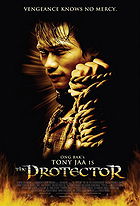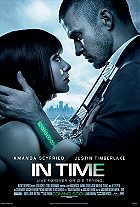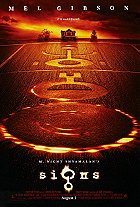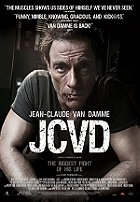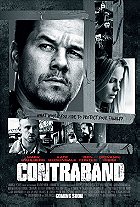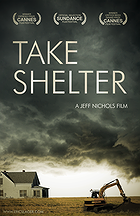Are you a fan of the old 21 Jump Street television show expecting this new film to be a respectful revamp? If so, stay far, far away from 2012's 21 Jump Street. Outside of the title and the basic premise of cops going undercover in a high school, this film has nothing in common with the old TV series as it adopts a completely different tone and spirit. The film exists in the same continuity as its predecessor, but it's a vehemently R-rated affair with a new slate of profane characters and a modern comedic sensibility. And surprisingly, it actually works, especially with the film evoking meta undertones as it raises some hilarious hell. See, the picture may seem like a flimsy excuse for filmmakers to steal ideas behind an old brand in lieu of original thinking, but 21 Jump Street subverts this by actually acknowledging its own derivative nature.

In high school, nerd Morton Schmidt (Hill) and jock Greg Jenko (Tatum) were sworn enemies, and they made each other's lives miserable. Seven years later, the two meet once again at the police academy. Here, Schmidt excels at exams but lacks the right physical attributes whereas Jenko is the exact opposite. Recognising that they make an ideal team since they fill each other's gaps, the two become best friends. After hopelessly botching a drug bust during their first few days as police officers, Jenko and Schmidt are transferred to the recently resurrected 21 Jump Street program run by a self-professed angry black captain (Cube). Given new identities and forced to pose as brothers, the two are sent to infiltrate a local high school in order to find the manufacturer of a new drug. Times have changed since their high school years, though - while Schmidt finds himself falling in with the cool crowd, Jenko ends up befriending the science geeks.
For those who need a history lesson, the original 21 Jump Street TV series ran from 1987 to 1991, and it's notable for bringing a young Johnny Depp into the spotlight. While it had its fun moments, the show wasn't a comedy as it treated its dramatic elements seriously. 2012's 21 Jump Street, on the other hand, is pretty much all comedy and satire. It's clear that writers Jonah Hill and Michael Bacall had a ball examining today's high school climate, with the film observing Jenko's utter bewilderment as the students shun his bad boy routine and display shocking newfound enthusiasm for studying. In one brilliant scene, Jenko also finds himself incapable of identifying some of the peculiar cliques which have now emerged. While revelling in this high school madness, 21 Jump Street is one hell of an entertaining riot, and even the standard-order plot elements are engaging. Once the final act begins to kick in, however, Hill and Bacall's script succumbs to some of the most eye-rolling comedy clichés imaginable, including break-up-to-make-up scenarios (Morton has to fix things with both Greg and his love interest), the predictable "getting kicked off the case" situation, and a climax ripped straight out of the "Action 101" handbook.

To put it bluntly, the trailers for this 21 Jump Street were awful, advertising the film as a dumbed-down reboot of the old TV show featuring the interminable "talents" of Jonah Hill and Channing Tatum. It seemed wrong to turn a classic police/high school drama into something more akin to Superbad. Happily, though, this is another classic case of poor marketing, as the finished movie is far more assured and satisfying than the trailers led us to believe. Directors Phil Lord and Chris Miller have a gift for pacing, as they imbued the proceedings with an infectious energy that keeps the film moving forward at an agreeable clip. 21 Jump Street is uneven, however. While it lands plenty of laughs, some jokes are too easy and not every scene gels (a brawl between Schmidt and Jenko in particular needed tighter editing).
Against all odds, Jonah Hill and Channing Tatum are excellent and enormously funny here. Tatum has done a lot of growing up over the last few years - once bland and charmless, he has turned into a charismatic leading man with a gift for humour and a firm grasp on comic timing. As for Hill, he's far less irritating than he usually is, and he's often hilarious as Schmidt. But it's Ice Cube who steals the show here in his few scenes as the angry black police captain, spouting line after line of profanity-laced, tremendously funny dialogue. Who would've thought Ice Cube would be a standout in anything? Meanwhile, the sweet Brie Larson and a funny Dave Franco are pitch-perfect as a couple of high-schoolers, while Rob Riggle chews the scenery on several occasions as a teacher.

The thought of a modern reboot of a cancelled decades-old TV show is often cringe-worthy. With any other filmmakers onboard, 21 Jump Street would've been a half-assed attempt at nostalgia which lazily rehashed a few episodes of the series. It's therefore commendable and relieving that the creators seized the opportunity to make a genuinely funny, entertaining movie that's also unafraid to laugh at itself.
7.2/10
 Login
Login
 Home
Home 183 Lists
183 Lists 1667 Reviews
1667 Reviews Collections
Collections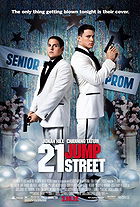
 0 comments,
0 comments, 